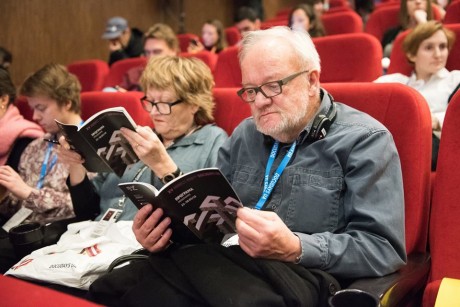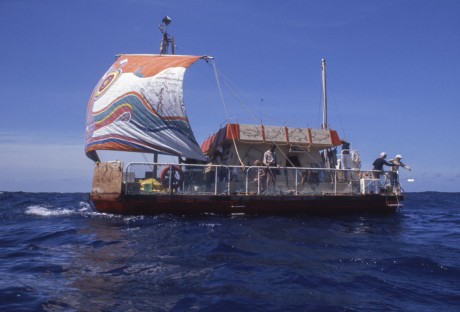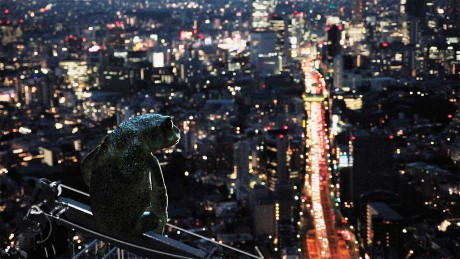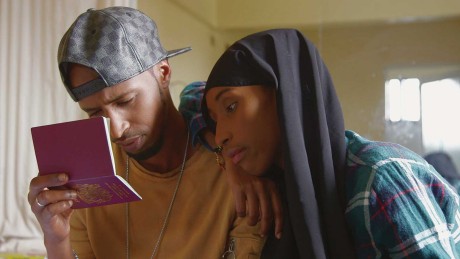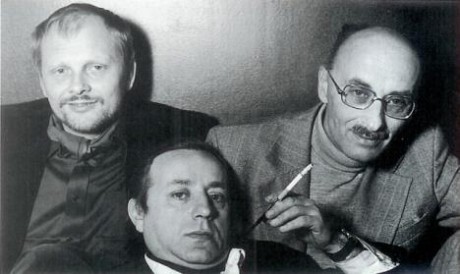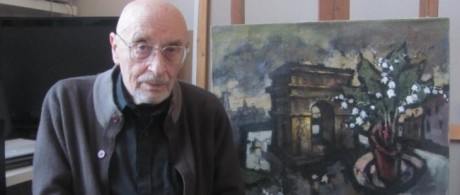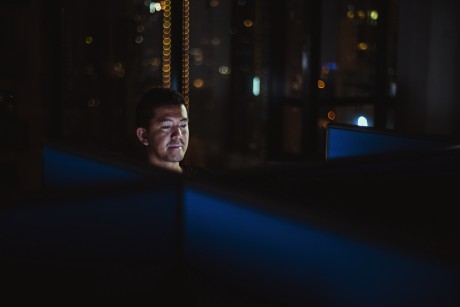NASIB FARAH OG SØREN STEEN JESPERSEN: LOST WARRIOR
Mohammed was just three years old when he was sent away from Somalia without his parents to a better life in England. As a teenager in London he got involved in crime and ended up in prison where he became radicalised. As a 19-year-old he was extradited to Somalia, where he landed straight in the arms of the terrorist organisation Al-Shabab. But when Mohammed finds out that Al-Shabab is not a liberation movement, but kills innocent people, he decides to flee. As a 23-year old he is living undercover in Mogadishu in the hopes of hiding from Al-Shabab. Here, he meets Fathi who was born in London, but sent to Somalia to be ‘reeducated’. They get married and when Fathi returns home to London she is pregnant with their child. ‘Lost Warrior’ follows the young couple’s attempt to be united as a family and to create a future for themselves and their son, Yassir. But Fathi and Mohammed are caught in the global politics of the day. Where to go? And what are his options now? They are also caught in their own culture, where the demands to maintain traditional and religious patterns is not at all consistent with being a young person in a modern world.
KOMMENTAR
Jamen det er jo en kærlighedshistorie og den fortælles sådan. Der er forhindringer, politiske, juridiske, administrative, kulturelle, familiemæssige, og i denne umulighed er der alligevel korte løsninger og øjeblikke af mulig lykke, i en scene snakker de tæt sammen om farverne på europæiske pas, og i den smukkeste scene forsøger han at placere et øresmykke med sine fumlende hænder så nær hendes ansigt og hvisker genert undskyldende: det er min første gang. Det er regulært spændende og det er meget ungt. Der er de to og der er deres barn, som både er sammenhængskraften og udmattelsen. Fortællingen begynder midt i det hele og slutter der, fortællingen er en række kapitler i de tres dannelseshistorier kombineret til en familiehistorie. Hele tiden i to byer, i to verdener, i to kulturer, hvor de tre er én historisk fremspirende kultur, dannet i det nye moderne, det nye modernes unge familie, som er bundet i det globale, men med en længsel mod det nye lokale sted.
Det er et stærkt hold, som fortæller den historie: filmen åbner i fotografisk skønhed, et vidunderligt gadebillede med mange filmhistoriske mindelser om stedet for handlingen med det samme roligt defineret, fortsætter i lutter regelbundet billedskønhed med lange scener på række, alle med Henrik Bohn Ipsens tydelige signatur, vel at mærke ikke påskrevet, men indarbejdet sammen med Anita Hopland. Et filmfotografisk mesterværk.
Filmoptagelsernes fortælling skrider roligt og omhyggeligt frem i klart afgrænsede scener, som alle holder deres intensitet til sekundet før de dør og så bringes videre i en ligesom umærkelig intens, stadigt stigende spænding, et drama af overblik og ro, endnu et klippekunstnerisk mesterværk af Steen Johannessen.
Personinstruktionen og det velforberedte arrangement i en lang række af disse scener af replikfyldt og gestiktydeligt samvær, ja, det er for en stor del en iscenesat dokumentarfilm, efterlader hver af disse en sjælden tilfredsstillelse af dybere forståelse og kompliceret anfægtelse hos mig,
Det er et dristigt kunstnerisk eksperiment, det er opdateret iscenesat dokumentarisme, det er i alle detaljerne (fotografi, klip, lyd, dialog, dekoration…) rene og ganske klare stiliserede, improviserede, ekstemporerede eller altså iscenesatte samvær og samtaler uden mislyde for mig at høre. Lost Warrior er modigt kontrolleret filmkunst af instruktørduen Nasib Farah og Søren Steen Jespersen.
Det en vigtig problemfyldt historie, hvis både juridiske, etiske og socialantropologiske sider i min oplevelse af fortællingens virkelighed behændigt i klippet bringer mig i anfægtelsens tvivlende syv sind, når jeg lytter til den britiske advokats i samtalen med den fortabte kriger og til onklen fra hans familieklans besindige rådgivning i scenerne med ham, dels krigeren alene, dels hvor krigeren har sin mor med. Men, men de to besindige voksne har jo kun små, omend vigtige biroller og fylder ikke nok til at fungere som mine helte, jeg som publikum i biografen holder med, knytter min identitet til. Men de er mig nærmest.
For jeg kan slet ikke komme i kontakt med de to unge, specielt ikke med ham, finder ham som 23 årig barnlig og urimelig og mærkeligt uerfaren trods sin angiveligt begivenhedsrige fortid som selvhjulpet barn, gangster, udvist efter afsoning og deserteret hellig kriger. Hun er lettere at forstå som ung mor i et britisk-somalisk hjem med genkendelige generationsmodsætninger. De to er imidlertid overdådigt smukke, de er overvældende selvoptagne, især han, og min forståelse for deres ungdomskultur svigter.
Onklen, som griber ansvarligt objektivt analyserende ind, bliver min nærmeste helt i filmen, advokaten analyserer jo blot og lægger med en beklagelse sagen bort i den således helt centrale skype scene, som sammenfatter den episode i den tre personers dannelsesroman Lost Warrior er, en episode, som både begyndes og afsluttes in medias res. Så jeg har et problem: jeg nyder uansvarlig filmværket på dets smukke overflade, men jeg kan ikke trænge ned i dets indholds skarptkantede dybde uden tvivl, tvivl… Men at forårsage anfægtelse hører jo netop filmkunst til.
Danmark, 2018. 82 min. Produktion: Helle Faber, Made in Copenhagen med fast hånd må jeg tro i det komplicerede værk som hun præsenterer på CPH:DOX 2018:
https://cphdox.dk/program/film/?id=515 (Datoer, tider, steder, billetter)
http://www.madeincopenhagen.dk/da/den-fortabte-kriger



